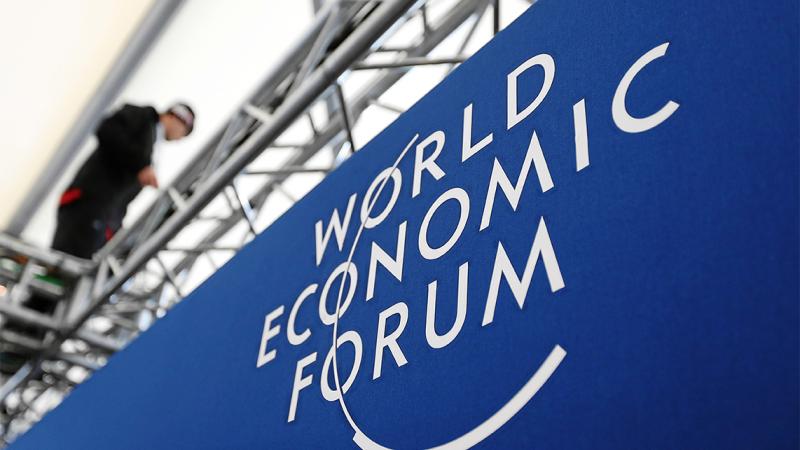January 20, 2014

Rensselaer Polytechnic Institute President Shirley Ann Jackson will join other global leaders in government, business, academe, media, and the arts at the World Economic Forum (WEF) 2014 Annual Meeting in Davos, Switzerland. This year’s meeting, titled “The Reshaping of the World: Consequences for Society, Politics and Business,” will be held January 22 - 25, 2014.
“There is no place in the world where so many stakeholders of our global future assemble, all united by the mission of improving the state of the world,” said Klaus Schwab, founder and executive chairman of the World Economic Forum, in announcing the agenda for the session.
“Working across disciplines and sectors and regions, we must build a stronger innovation ecosystem — to address the great challenges and opportunities of our time in energy security, health, food, water, and national security and the linked challenges of climate change and allocation of scarce resources,” President Jackson says.
“We live in a data-driven, Web-enabled, supercomputer-powered, globally interconnected world. The world is awash in data. It is the most potent new natural resource of our time. The challenge for businesses, governments, and educational institutions is how best to prepare and align ourselves to harness the full capacity of these new tools and technologies for the good, and to prepare the next generation to succeed and lead in this new data-driven world,” she said.
“The World Economic Forum’s annual meeting offers an unparalleled opportunity to set the goals and enhance the interconnections that can help strengthen our various and collective institutions as we work to meet the challenges and tap the opportunities before us,” President Jackson said.
President Jackson, a member of the WEF Science Advisory Committee and the WEF-USA Board, will moderate a discussion on the societal, economic, and technological forces reshaping manufacturing globally, moderate a discussion on future energy solutions required to power transportation, and facilitate a conversation on the art and science of matter with Nobel Laureate Dr. Dan Shechtman.
She also will participate in discussions with the Global University Leaders Forum (GULF) on finding new approaches to critical global challenges — such as energy, health, water, and financial security, and new paradigms for universities of the future.
The World Economic Forum describes itself as “an independent international organization committed to improving the state of the world by engaging business, political, academic, and other leaders of society to shape global, regional, and industry agendas.”
Discussions during this year’s WEF annual meeting will focus on (1) Disruptive innovation: how scientific breakthroughs and technological forces are radically transforming the way we live, learn, communicate, and collaborate, (2) Inclusive Growth: How to generate more resilient and equitable growth in the midst of widening inequality, (3) Society’s New Expectations: what can be done to reverse the widespread erosion of confidence in business and government leaders in the wake of the financial crisis? And (4) A World of 9 Billion: how can both mature and emerging economies embark on a more sustainable path to development?
A theoretical physicist, Dr. Jackson has held senior leadership positions in government, industry, research, and academe. Her research and policy focus includes global energy security and the national capacity for innovation, including addressing what she has dubbed the “Quiet Crisis” of looming gaps in the science, technology, and engineering workforce and reduced support for basic research. Dr. Jackson was chairman of the U.S. Nuclear Regulatory Commission from1995 to 1999, and currently is a member of the President’s Council of Advisors on Science and Technology (PCAST), co-chairs the President's Innovation and Technology Advisory Committee (PITAC), and is a member of the U.S. Department of State International Security Advisory Board (ISAB). She is a member of the British Royal Academy of Engineering, the U.S. National Academy of Engineering, the American Philosophical Society, and a fellow of the American Academy of Arts and Sciences, the American Physical Society, and the American Association for the Advancement of Science (AAAS). She is a Regent of the Smithsonian Institution, and a member of the Board of the Council on Foreign Relations and The Brookings Institution. She is a member of the Council on Competitiveness and co-chaired its Energy Security, Innovation and Sustainability initiative. She also is a member of the Board of Directors of global companies including IBM and FedEx.
Big Data, broad data, high performance computing, data analytics, and Web science are creating a significant transformation globally in the way we make connections, make discoveries, make decisions, make products, and ultimately make progress. Under the auspices of The Rensselaer Institute for Data Exploration and Applications — or The Rensselaer IDEA — Rensselaer is engaged in a university-wide effort to maximize the capabilities of these tools and technologies for the purpose of expediting scientific discovery and innovation, developing the next generation of these digital enablers, and preparing our students to succeed and lead in this new data-driven world.
About Rensselaer
Rensselaer Polytechnic Institute, founded in 1824, is the nation’s oldest technological research university. The university offers bachelor’s, master’s, and doctoral degrees in engineering, the sciences, information technology, architecture, management, and the humanities and social sciences. Institute programs serve undergraduates, graduate students, and working professionals around the world. Rensselaer faculty are known for pre-eminence in research conducted in a wide range of fields, with particular emphasis in biotechnology, nanotechnology, computation and information technology, the media arts and technology, and energy and the environment. The Institute is well known for its success in the transfer of technology from the laboratory to the marketplace so that new discoveries and inventions benefit human life, protect the environment, and strengthen economic development.
For information about the World Economic Forum 2014 Annual Meeting, go to: http://www.weforum.org/
For information about Rensselaer Polytechnic Institute, go to: http://www.rpi.edu/